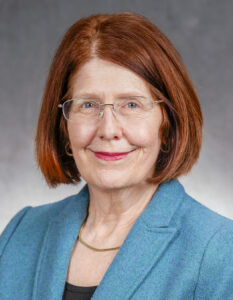ThreeSixty students Wonser Mongrue and Gloria Ngwa sat down with Rep. Tina Liebling (DFL, Rochester) and Unidos MN to discuss how Minnesota has opened health care access to all, including undocumented people.

Liebling, who is the author of this bill has a professional background in health care. With her experiences she was able to help us understand what this bill is, and how it can benefit and be used by young people.
This interview has been edited for length and clarity.
Why does healthcare for all matter to young undocumented people, and how can they be used?
What we did last session is open up MinnesotaCare, which says just because you don’t have documents doesn’t mean you’re not allowed health care. We did that last (session), and we’re very proud of that. Here in Minnesota, we have many people who’ve been living here a long time who have no access to health care. We learned from our pandemic, if we didn’t already know, that we can’t all be healthy unless we’re all healthy. It’s important for everyone to be able to get basic health care.
Oftentimes we’ve been locking people out because they didn’t have their documents. It meant that some people are folks who have worked here, they have lived here, and they have families here, maybe their children are citizens. But it often meant that for some with diabetes, for example, they’d be in the hospital which would be paid for, then they’d get discharged, and they’d have no way to get their care for their diabetes. So, then they’d be back in the hospital. That helps no one. We believe that letting people who qualify in their income, be in our public programs, regardless of their immigration status, is good for all of us.
What is the state’s role in health care?
We are not at the point of implementing a big health care change. If we were able to spend a lot of state money on a relatively small number of people, we could improve their access, we could improve their health insurance by a lot, but it would be extraordinarily expensive.
Most health insurance is subsidized by the federal government. I believe that the path to health care for everyone is to move away from health insurance. No one likes health insurance. … Almost all the people who are on our public programs like Medicaid, and our MinnesotaCare Program – we have like 1.5 million people in Minnesota who are those two programs – and most of them go into a private insurance product that manages their care.
When private entities denies their claims that doesn’t encourage them to go get seen, but instead puts barriers between them and their health care providers. I think we should get rid of those private interests out of our public programs. I don’t want to see us put more people into private programs.
How do you feel others in your party support health care reform?
The thing people don’t really understand a lot of times about healthcare is that healthcare is extremely complicated. … It’s not as though everyone knows how to do it, or that no one wants to, far from it. We have to say, “Can we still do it If we do it this way? Will you still give us the money you’re already giving us? Is it OK If we change this and change that?” It’s a very slow process.
When people think, “Oh, Democrats are in charge now, why don’t they just fix it?” The answer is because there is nothing like that. There is no golden ring that we just have to grab. It just doesn’t exist. We have to find the gold and make the ring. … We know that a lot of the money is being wasted in our system and not buying health care.
Wonser worked with Sahan Journal Reporter Alfonzo Galvan and MPR Producer Ngoc Bui to finish her story. This story was completed at ThreeSixty’s Winter News Team: Capitol Edition in February 2024, where high school journalists covered important legislative issues, impacting Minnesota youth. Read more stories here.
